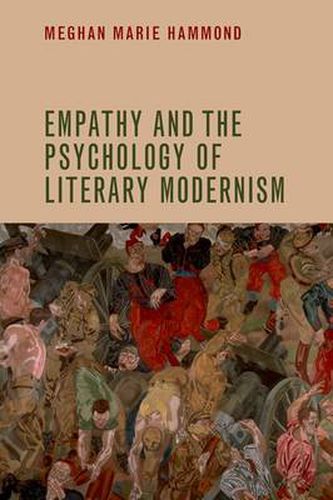Readings Newsletter
Become a Readings Member to make your shopping experience even easier.
Sign in or sign up for free!
You’re not far away from qualifying for FREE standard shipping within Australia
You’ve qualified for FREE standard shipping within Australia
The cart is loading…






Shows how fin de siecle conceptions of empathy are woven into the fabric of literary modernism
Empathy is a cognitive and affective structure of feeling, a bridge across interpersonal distance. Coined in 1909 to combine English “sympathy’ and German "Einfuhlung,‘ "empathy’ is a specifically twentieth-century concept of fellow feeling. Empathy and the Psychology of Literary Modernism looks into the little-known history of empathy, revealing how this multi-faceted concept had a profound effect on literary modernism.
Meghan Marie Hammond shows how five exemplary writers (Henry James, Dorothy Richardson, Katherine Mansfield, Ford Madox Ford, and Virginia Woolf) tackle the so-called "problem of other minds’ in ways that reflect and enrich early twentieth-century discourses of fellow feeling. Hammond argues that these authors reconfigure notions of intersubjective experience; their writings mark a key shift away from sympathetic forms of literary representation toward empathic forms that strive to provide an immediate sense of another’s thoughts and feelings. But while literary modernism values empathic experience as an ideal, it is also teeming with voices that recognize potential for danger, even violence, in acts of empathy. These voices illuminate our culture’s ongoing concern with empathy’s limits.
Key Features:
Recovers early psychology, a discipline that has often been neglected in favor of psychoanalysis, as a framework for literary modernism Provides a conceptual history of empathy that expands our understanding of the modernist world Grants new insight into modernist technique by explaining how it relates to contemporaneous psychological and aesthetic theories on empathy Prompts a rethinking of empathy, a capacity that is as widely misunderstood as it is celebrated
$9.00 standard shipping within Australia
FREE standard shipping within Australia for orders over $100.00
Express & International shipping calculated at checkout
Shows how fin de siecle conceptions of empathy are woven into the fabric of literary modernism
Empathy is a cognitive and affective structure of feeling, a bridge across interpersonal distance. Coined in 1909 to combine English “sympathy’ and German "Einfuhlung,‘ "empathy’ is a specifically twentieth-century concept of fellow feeling. Empathy and the Psychology of Literary Modernism looks into the little-known history of empathy, revealing how this multi-faceted concept had a profound effect on literary modernism.
Meghan Marie Hammond shows how five exemplary writers (Henry James, Dorothy Richardson, Katherine Mansfield, Ford Madox Ford, and Virginia Woolf) tackle the so-called "problem of other minds’ in ways that reflect and enrich early twentieth-century discourses of fellow feeling. Hammond argues that these authors reconfigure notions of intersubjective experience; their writings mark a key shift away from sympathetic forms of literary representation toward empathic forms that strive to provide an immediate sense of another’s thoughts and feelings. But while literary modernism values empathic experience as an ideal, it is also teeming with voices that recognize potential for danger, even violence, in acts of empathy. These voices illuminate our culture’s ongoing concern with empathy’s limits.
Key Features:
Recovers early psychology, a discipline that has often been neglected in favor of psychoanalysis, as a framework for literary modernism Provides a conceptual history of empathy that expands our understanding of the modernist world Grants new insight into modernist technique by explaining how it relates to contemporaneous psychological and aesthetic theories on empathy Prompts a rethinking of empathy, a capacity that is as widely misunderstood as it is celebrated